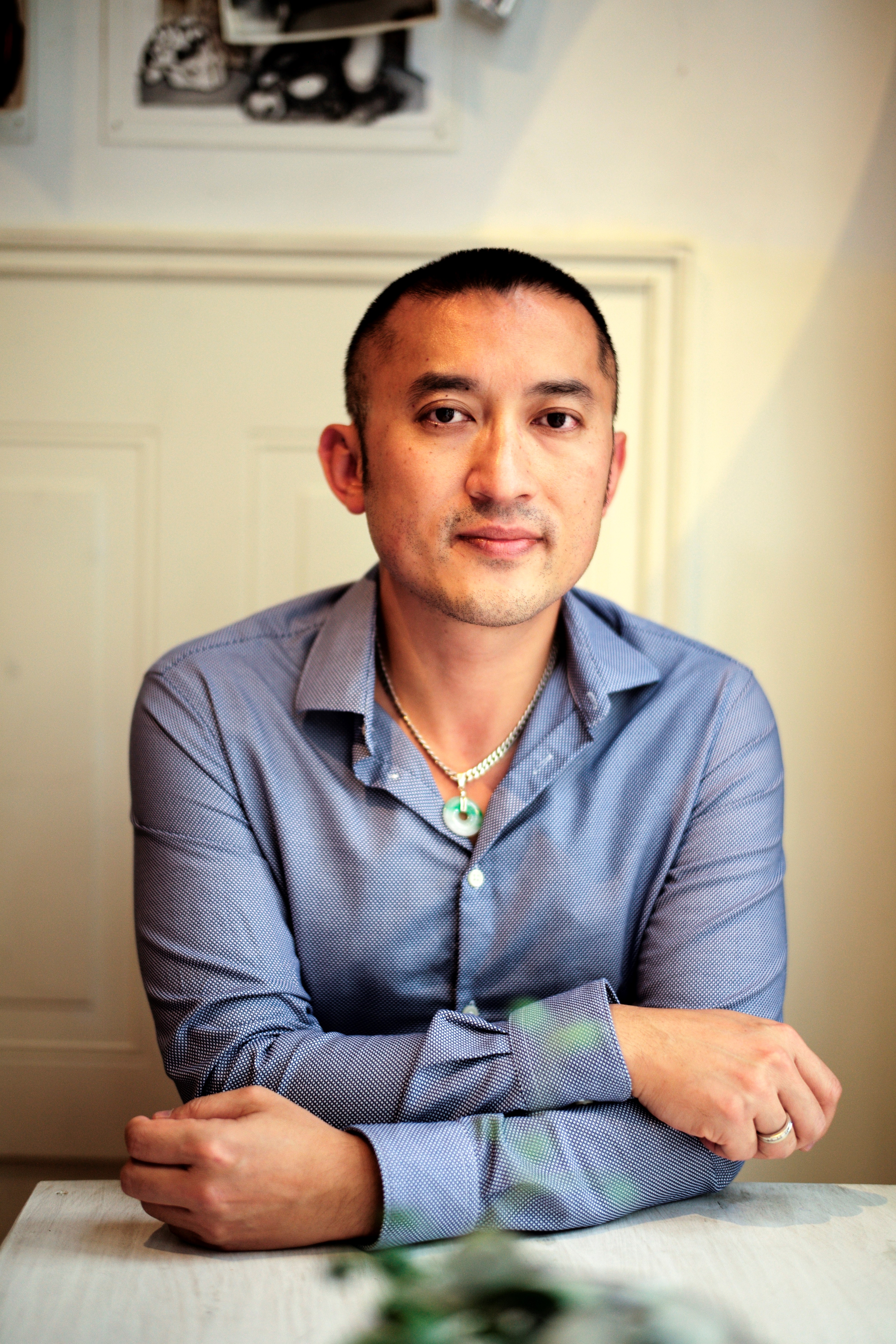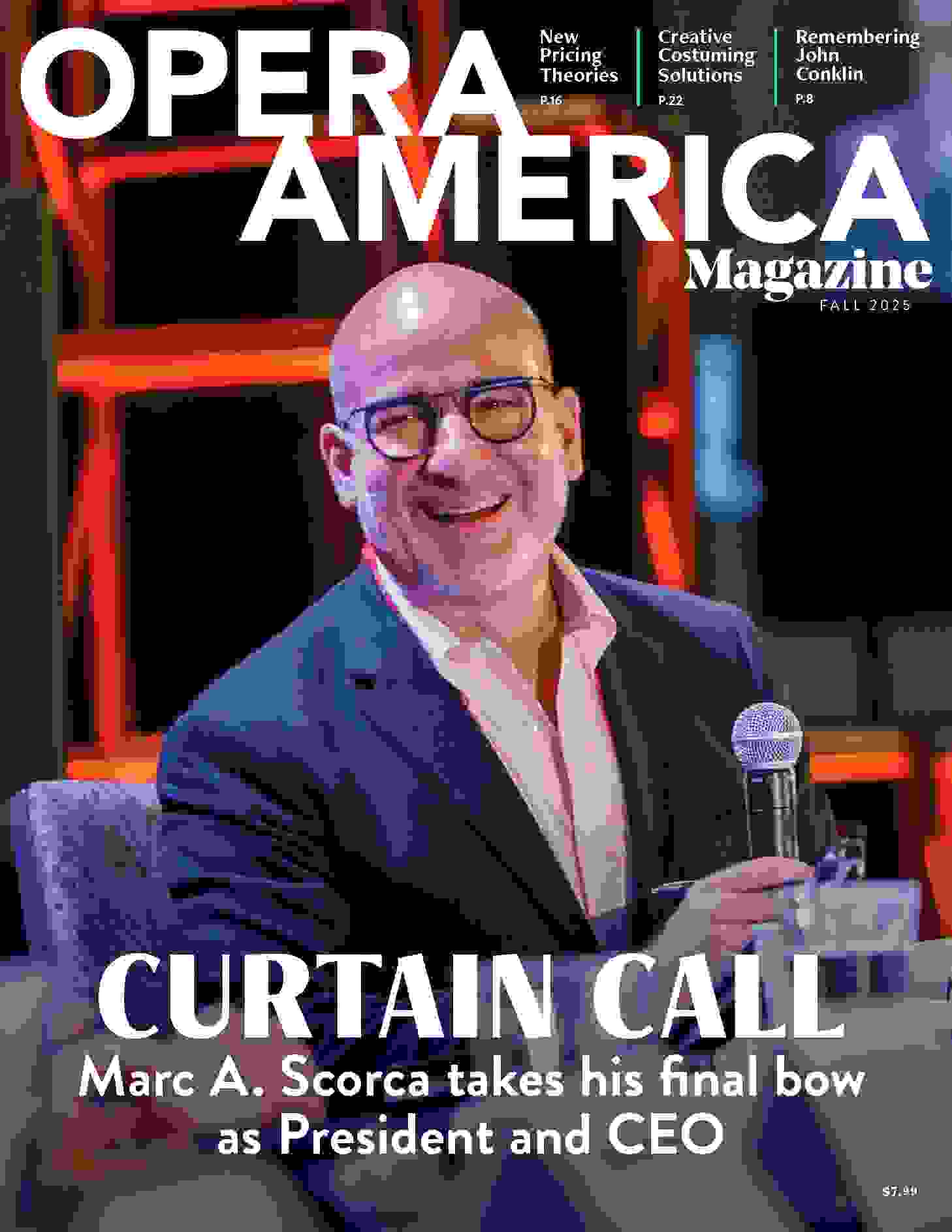My First Opera: Huang Ruo

I was born and raised in China in a village on Hainan Island. In every village of our size, there was a communal open-air space in front of the village temple where kids would play and run around, and people would bring their clothes or rice crop to dry during the day. At night, sometimes Chinese opera troupes would travel from village to village to perform in those communal outdoor spaces, so my first opera experience was going to see village opera with my grandmother when I was eight or nine years old.
Chinese opera is quite different than Western opera. For one, there’s no pit and no conductor — just an ensemble of Chinese instrumentalists on stage left led by the percussionist’s various beats. The singers put makeup on their faces, almost like a mask, according to their roles. There’s a formalization of facial drawings for different characters, so when you see the person appear on stage, even before they open their mouth to sing a word, you know that’s a bad guy, a good guy, a maid, a comical character, a scholar, or a warrior.
The set is very simple and bare. Normally it’s a table and two chairs. Everything else is imaginary and symbolic. For example, when someone “enters” gesture of opening the imaginary door and the percussionist would make a door-opening sound at the same time. In a traditional Chinese house, there is a step into every room, so you need to raise your foot to walk in. When a Chinese opera singer is “entering” the imaginary room, they raise their foot at the imaginary door step, and when they leave, they go out in that same spot.
The opera plots often start quite tragically but turn into a happy ending. At its heart, there is always a moral of the story to tell. Opera is also the place to learn manners and understand social structure. My grandmother had never been to school and did not know how to write or read, but she loved opera, so that’s where she got much of her education.
I saw opera as the norm of the musical art form, but my father was a symphonic composer, so that is what I pursued when I went to Shanghai at 12 to study composition formally. During my student days, most of the compositions I wrote were for instruments. They were never for the voice. I knew that opera was hard to write, and you needed to collaborate with all kinds of artists. I knew I wasn’t ready, and also, that I wasn’t enlightened enough to write opera yet.
Then one day during rehearsal, a colleague of mine said, no matter what piece you’re writing, there’s always a certain lyricism to it. I was shocked. Later, when I reflected on that comment, I thought, that makes sense because whenever I’m working on instrumental works, I’m always singing the line, no matter whether it’s for piccolo or bass. This vocal tradition is in my blood.
When I turned 30, I wrote my first opera, Dr. Sun Yat-Sen, and I thought, this feels like home. This makes sense to me. Everything I’ve done in the past was building to this moment. Suddenly, there was this big U-turn in my career. I’ve written eight operas since 2011, and it has a lot to do with my childhood opera experiences.
Huang Ruo is a composer, conductor, pianist, vocalist, and composition faculty member at the Mannes School of Music. M. Butterfly, with a libretto by David Henry Hwang, will premiere this summer at the Santa Fe Opera. Book of Mountains and Seas, music and words by Huang Ruo, will have its Dutch premiere this summer at Muziekgebouw aan’ t IJ, Amsterdam.
This article was published in the Summer 2022 issue of Opera America Magazine.





